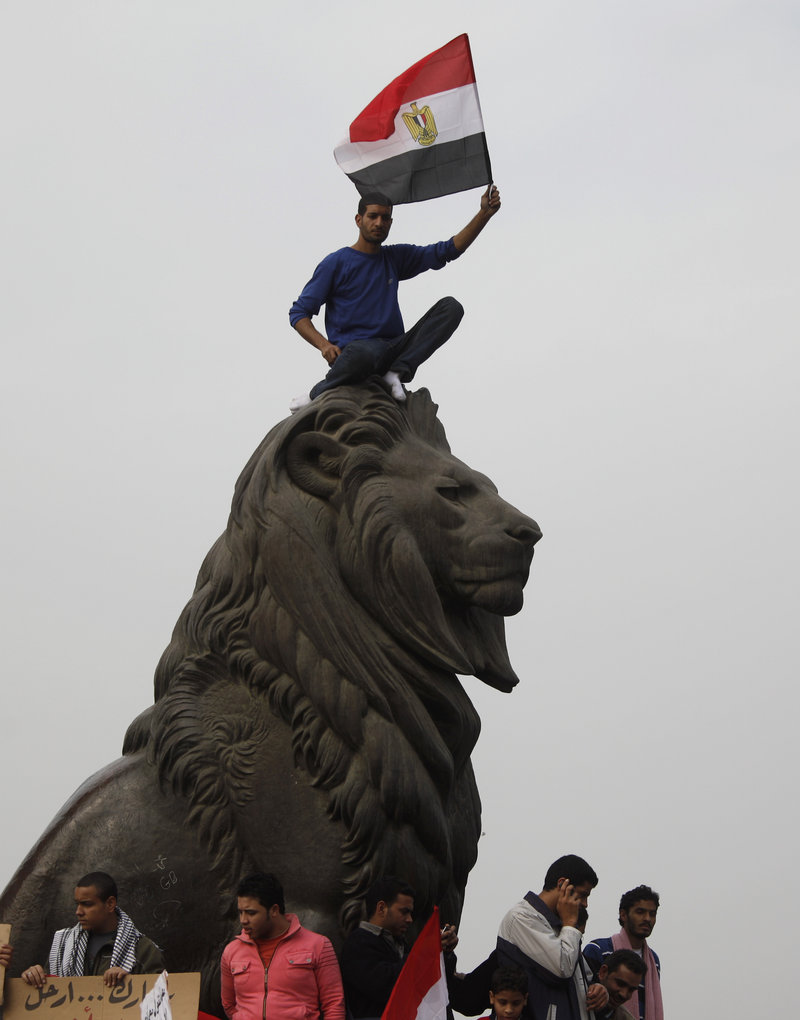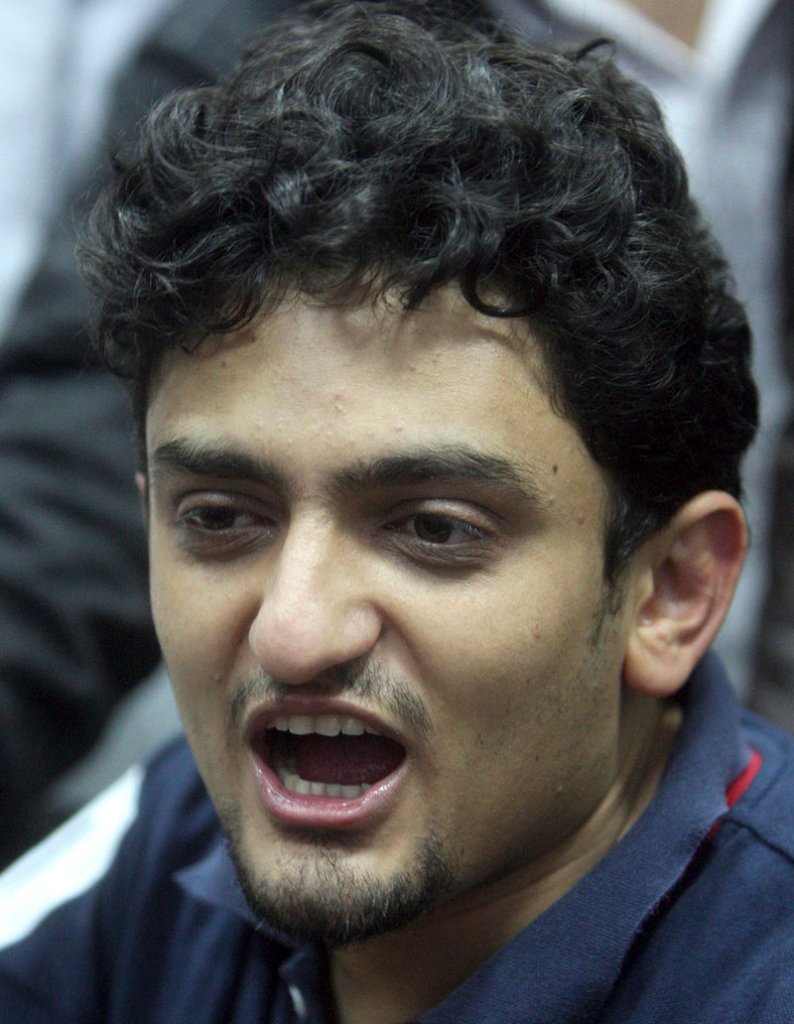CAIRO — Egyptian demonstrators made clear Tuesday that their quest to oust President Hosni Mubarak is far from over, flooding into a downtown Cairo square in what appeared to be the largest turnout since the popular revolt began here two weeks ago.
But even amid the reinforcements, protesters said they must do more or risk their political and physical survival. They said that if the crowds disperse but Mubarak remains in power, they might be attacked, jailed or even killed.
Egypt’s new vice president, Omar Suleiman, failed to calm those concerns as he delivered a mixed message Tuesday, promising that authorities wouldn’t seek retribution against the demonstrators but also warning that his government “can’t put up with” prolonged protests.
The protesters drew energy from Wael Ghonim, 30, a Google executive who has become something of a folk hero among young protesters.
“I’m not a hero, but those who were martyred are the heroes,” he told hundreds of thousands in Tahrir Square.
Ghonim helped organize the first street protests in Cairo on Jan. 25; Egyptian security officials then detained him for 12 days. Many who joined the demonstrations for the first time Tuesday said Ghonim’s emotional TV appearance after his release, in which he wept for those killed in the protests, had inspired them.
Ghonim’s words galvanized a crowd that clearly rejected Suleiman’s assurances earlier in the day on state television that the protesters should not fear reprisals, the latest in the government’s attempts to persuade its critics to return home. Mubarak had “issued a directive to prevent them being pursued, harassed or having their right to freedom of expression taken away,” Suleiman said.
Suleiman also quoted the president as saying that Egypt’s young people deserved gratitude “for this national dialogue, emphasizing that it puts our feet on the right path out of this ongoing crisis,” and he said that Mubarak had called for an investigation into bloody clashes last week that protesters blame on the president’s loyalists, undercover police and paid “thugs.”
But Suleiman also showed growing frustration with the protests. He told a meeting of newspaper chiefs that the demonstrations must end soon and repeated that there will be “no ending of the regime,” according to The Associated Press, which cited a report from the official Middle East News Agency.
The White House on Tuesday issued an unusually blunt rebuke to Suleiman over his weekend remarks suggesting that Egyptian society lacked a “culture of democracy” and was not ready for an immediate lifting of the country’s long-standing state of emergency.
“I don’t think that it in any way squares with what those seeking greater opportunity and freedom think is a timetable for progress,” White House spokesman Robert Gibbs said. He said that a greater threat of instability would come from a government refusal to take steps to give demonstrators the real reforms they are looking for.
Vice President Joe Biden phoned Suleiman on Tuesday to reiterate U.S. concerns about Egypt’s response to the crisis and urged him to do more to end the arrests and harassment of journalists, protesters and activists.
Protesters here said they were worried that any promise of safety from retribution could be broken if they bowed to pressure from the 30-year-old regime and left the streets.
“If (Mubarak) stays in power, he will take revenge on all of us,” said Khalid al-Zidi, 46, in Tahrir Square. The Education Ministry employee had spent seven days among the protesters but went home Monday. He returned Tuesday with his sister, his three children and his wife, an unemployed teacher.
Al-Zidi said he had been detained for 87 days because he voted for an independent candidate from the banned Muslim Brotherhood, the country’s biggest opposition group, in parliamentary elections in November.
“If Mubarak stays, this will be half a revolution,” he said. “It would mean a grave for all the people who participated.”
Tahrir Square was decorated Tuesday with photos of some of the estimated 300 people killed during the two weeks of protests. A memorial of “martyrs’ clothes” was set up at one entrance to the square.
Protesters also gathered Tuesday in front of Egypt’s parliament for the first time, demanding that it be dissolved.
Mahmoud Salem, a well-known anti-government blogger, said he’d heard promises such as Suleiman’s before police incited a mob to attack him and his friends before he was detained and freed and before mobs attacked the square.
“The government said they wouldn’t target us on Tuesday, and they targeted us on Wednesday and Thursday,” he said. “The point is the more (protesters) we are, the less able they are to crush us.”
Send questions/comments to the editors.




Success. Please wait for the page to reload. If the page does not reload within 5 seconds, please refresh the page.
Enter your email and password to access comments.
Hi, to comment on stories you must . This profile is in addition to your subscription and website login.
Already have a commenting profile? .
Invalid username/password.
Please check your email to confirm and complete your registration.
Only subscribers are eligible to post comments. Please subscribe or login first for digital access. Here’s why.
Use the form below to reset your password. When you've submitted your account email, we will send an email with a reset code.